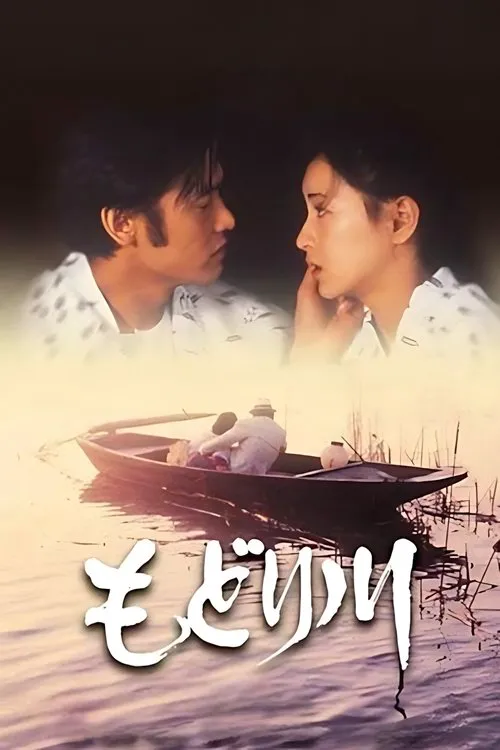Modori River

Plot
Set against the vibrant backdrop of early 20th-century Japan, Modori River is a poignant and intimate portrayal of a complex figure, Takeha, a brilliant and charismatic poet who embodies the essence of Taisho Romanticism. Through a sweeping narrative that explores the intersections of love, art, and ambition, the film delves into the world of Takeha, a true visionary whose creative genius and passionate nature inspire fervent devotion in the women who surround him. Born into a family of modest means, Takeha's intellect and creativity are evident from a young age. He is drawn to the world of literature and poetry, and his remarkable talent quickly garners attention from prominent writers and thinkers of his time. As he navigates the rarefied circles of Tokyo's literary scene, Takeha's star rises, and his works are met with acclaim and adoration. However, Takeha's artistic genius is matched only by his mercurial personality, which is prone to fits of passion and mood swings. His relationships with women are intense and all-consuming, often leaving them torn between their loyalty to him and their own sense of identity. One such woman is the enigmatic and beautiful, Oto, who becomes Takeha's muse and confidante. Oto is a free-spirited and independent young woman, who, like Takeha, is a product of her generation's growing disillusionment with traditional values. She is drawn to Takeha's creative energy and his unwavering commitment to his art. As they navigate the vibrant streets of Tokyo, Oto becomes an integral part of Takeha's inner circle, offering emotional support and intellectual companionship. However, as Takeha's fame grows, so does his ego and arrogance. He becomes increasingly demanding and controlling, expecting Oto and the other women in his life to support his artistic endeavors at any cost. While Takeha's genius can be overwhelming, it is also his most compelling attribute, drawing women like Oto into his orbit and keeping them enthralled. Throughout the film, the lines between Takeha's relationships with Oto and the other women become increasingly blurred. Each encounter is a dance of give-and-take, with Takeha drawing the women closer to him through a mix of charm, manipulation, and emotional intensity. While some of his lovers remain devoted and loyal, others begin to question the true cost of their involvement with the mercurial poet. As Takeha's life reaches a crescendo, the film turns to the figure of Yumi, a young and ambitious writer who is drawn to Takeha's genius and his promise of a brighter future. Yumi is a force to be reckoned with, possessing a sharp intellect and a fierce determination that eventually draws her into a complex web of relationships with Takeha and the women in his life. Through Yumi's eyes, the film offers a nuanced exploration of Takeha's inner world, revealing a deeply vulnerable and insecure individual beneath the surface of his charismatic exterior. Takeha's relationships with the women in his life are not simply a reflection of his artistic ambitions but a desperate attempt to fill the void within himself. As Yumi navigates the complex landscape of Takeha's emotions, she begins to see the poet in a new light, as a complex and multifaceted individual, struggling to reconcile his artistic vision with his own sense of identity. Ultimately, Modori River is a poignant and thought-provoking exploration of the intersection between art and life, love and ambition. Through Takeha's story, the film raises fundamental questions about the price of creativity and the cost of greatness. As the poet's world begins to unravel, the film offers a powerful meditation on the human condition, one that will leave audiences reflecting on the true meaning of genius, passion, and devotion.
Reviews
Recommendations



